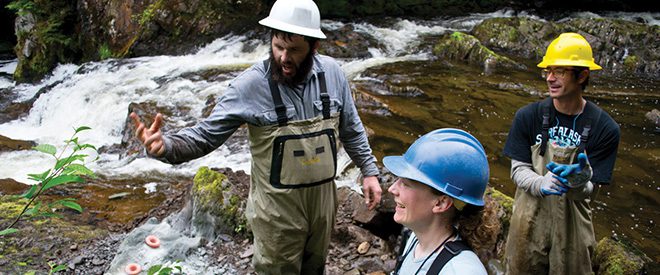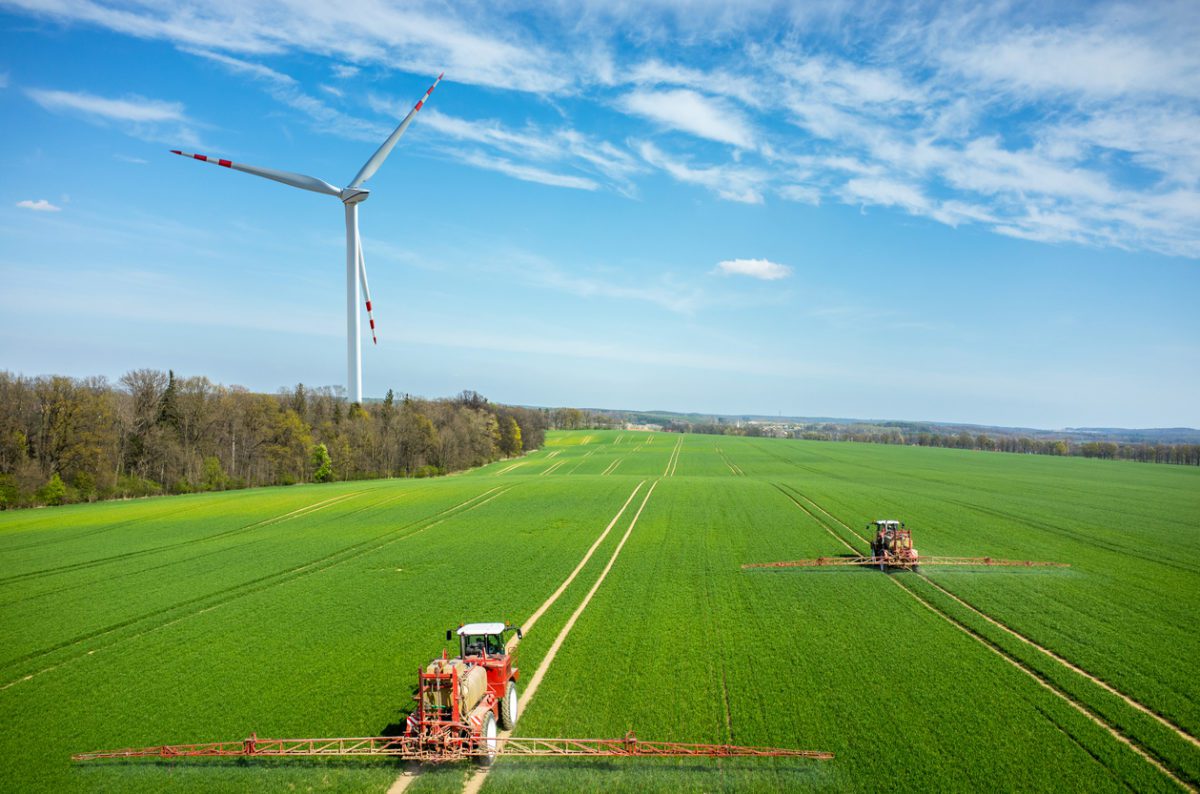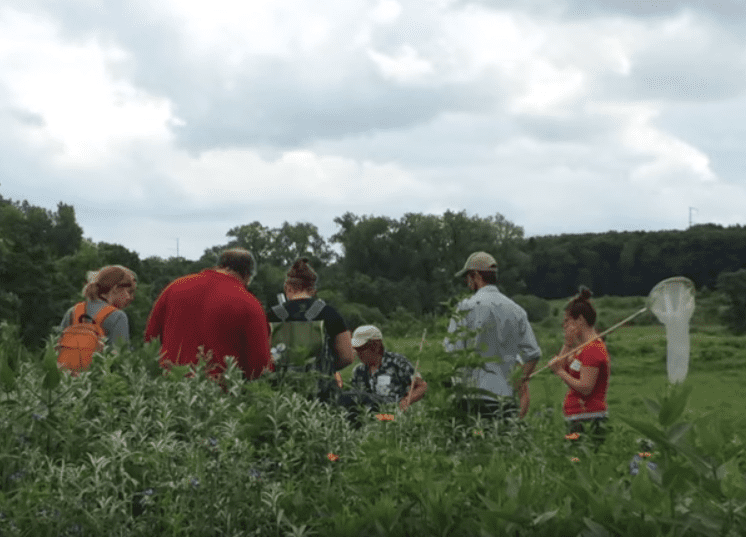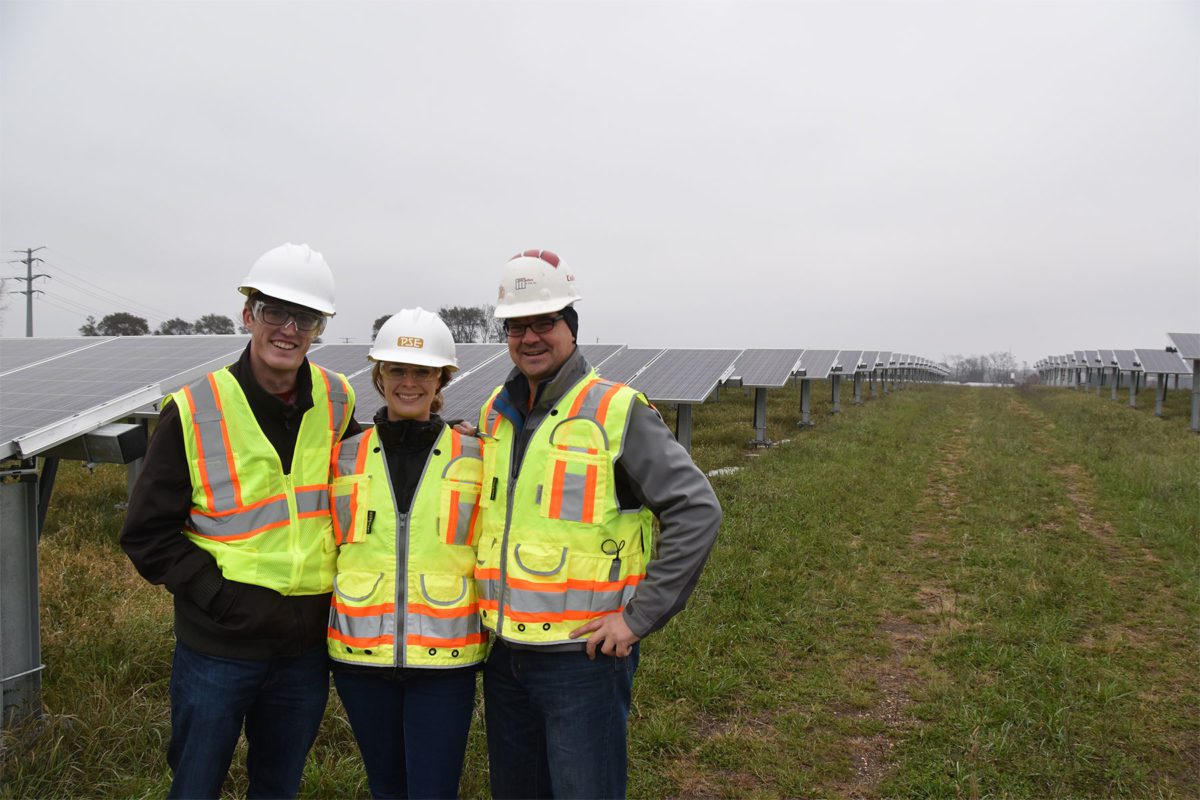Environmental Conservation: Enviro Conservation MS
Master of Science in Environmental Conservation

Built on the legacy of Wisconsin’s environmental leaders, the UW–Madison MS in Environmental Conservation is a condensed and immersive program. Gain the skills to address global conservation challenges—and to advance your career.
Is this program right for you?
As a future conservation leader, you need solution-oriented, interdisciplinary expertise to tackle complex conservation decisions in a changing world. The UW–Madison Master of Science in Environmental Conservation is not a traditional master’s degree: Our program is about networking and real-world experience as much as it is about acquiring knowledge.
Work directly with our alumni and colleagues in conservation organizations and agencies that respond to local, regional, and global environmental challenges. Apply principles and tools from conservation planning, environmental policy, and sustainable development. You will use financial management, institutional governance, GIS, and environmental monitoring tools while you synthesize interdisciplinary topics like conservation science, social systems, and policy management.
We attract applicants from around the world and from a variety of backgrounds. Our program is designed to provide opportunities that develop your expertise and expand your contacts in the conservation sector. We strive to prepare our students for leadership positions in nongovernmental organizations, federal and state agencies, and related businesses.
In this condensed and blended program structure, you will complete courses on campus during the first summer and fall semesters. Our spring distance learning courses are delivered online, giving you the flexibility to participate from any location. In your final semester, complete a summer leadership experience, which can take place anywhere in the world. We encourage you to be independent and resourceful in seeking your leadership experience, but we have a large network of contacts—from small NGOs to large international organizations—who are eager to offer opportunities to our students.
Is this program right for you?
As a future conservation leader, you need solution-oriented, interdisciplinary expertise to tackle complex conservation decisions in a changing world. The UW–Madison Master of Science in Environmental Conservation is not a traditional master’s degree: Our program is about networking and real-world experience as much as it is about acquiring knowledge.
Work directly with our alumni and colleagues in conservation organizations and agencies that respond to local, regional, and global environmental challenges. Apply principles and tools from conservation planning, environmental policy, and sustainable development. You will use financial management, institutional governance, GIS, and environmental monitoring tools while you synthesize interdisciplinary topics like conservation science, social systems, and policy management.
We attract applicants from around the world and from a variety of backgrounds. Our program is designed to provide opportunities that develop your expertise and expand your contacts in the conservation sector. We strive to prepare our students for leadership positions in nongovernmental organizations, federal and state agencies, and related businesses.
In this condensed and blended program structure, you will complete courses on campus during the first summer and fall semesters. Our spring distance learning courses are delivered online, giving you the flexibility to participate from any location. In your final semester, complete a summer leadership experience, which can take place anywhere in the world. We encourage you to be independent and resourceful in seeking your leadership experience, but we have a large network of contacts—from small NGOs to large international organizations—who are eager to offer opportunities to our students.
Admissions requirements
All applicants must:
- Have a bachelor’s degree from an accredited institution.
- Have a minimum undergraduate GPA of 3.0.*
- Submit evidence of English language proficiency, if applicable. The required proficiency scores are: TOEFL IBT 92, PBT 580; or IELTS 7.0.
*GRE scores are not needed for students with a 3.0 or higher GPA; applicants with a GPA below 3.0 should connect with the program coordinator and must also submit GRE scores.
Application materials required:
- Online application
- Resume/CV
- Statement of interest
- Unofficial transcripts
- Two letters of recommendation
Program highlights
- Our program is accelerated, so you earn your degree in just 15 months.
- The Environmental Conservation program is adaptable, and you can form your degree path to fit your own career objectives. You work closely with UW faculty and alumni, but also complete some of your course work independently.
- This program is offered through the Nelson Institute, renowned for its innovative research in environmental studies and conservation.
How you'll learn
- 15-month curriculum includes two semesters of study on UW-Madison campus, one semester of online coursework, and one semester of independent learning.
- Attend our Summer Conservation Institute, where you will meet leading conservation practitioners. Take courses on campus in fall, complete distance learning courses in spring, and participate in an individual leadership experience in summer—here in Madison or anywhere in the world.
- Work with a cohort while matching your specific skills and interests with the needs of organizations and agencies working on critical conservation challenges related to your own career aspirations.
- Through our leadership placement network, gain expertise and build relationships that will enhance your career.
Sample curriculum
Summer (on campus)
- Environmental Conservation Cohort & Leadership Seminars
- Conservation of Biodiversity
- Land Use Policy and Planning
Fall (on campus)
- The Practice of Conservation Biology and Sustainable Development
- Biology and Ecology courses
- Social Systems and Sustainability
- Conservation Planning
Spring (online)
- Environmental Conservation Professional Practice
- Environmental Conservation Tools Modules
Summer (independent learning)
- Summer Leadership Experience
Job outlook
- Program Management1
- Education and Outreach
- Community Engagement
- Communications
- Conservation Planning
- Fundraising
- Policy
- Restoration
- Environmental Consulting
- Government1
- NGOs
- Industry
- Academia
Source: Burning Glass Technologies: Labor Insight. 2020.
Burning Glass Technologies’ Market Salary is an estimated expected salary. Market Salary uses machine learning algorithms to account for experience, skill, and education among other factors that may impact individual salaries.
Source 1: Burning Glass data and 2019 alumni survey
Ready to learn more about Environmental Conservation: Enviro Conservation MS?
View the UW-Madison Guide
Stay in touch
Sign up to receive application tips and deadline reminders.
Connect with our enrollment coaches
Our friendly, knowledgeable enrollment coaches are here to answer your questions. Contact an enrollment coach to:
- Learn how to make this program work with your life/schedule
- Get help with your application
- Determine if financial aid is available
Visit with our coaches on campus or at an upcoming student fair in your area. Search student fairs & events.

This program changed the course of my career. After graduation, I will be the new conservation programs coordinator for the Natural Resources Foundation of Wisconsin, where every day I will use the skills I learned and practiced in this program. I feel like I am part of the Nelson Institute community and know that I will be supported in my career.
Lindsey Taylor, Environmental Conservation


